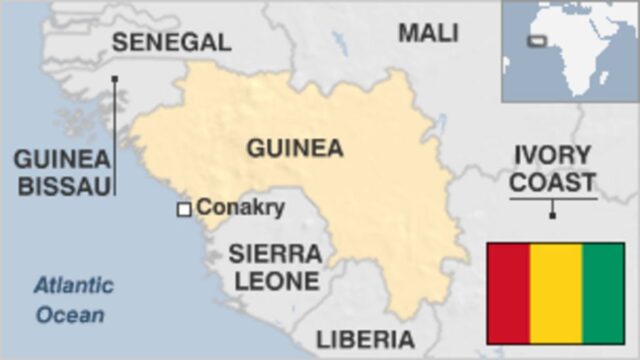In 1958, Guinea became independent with its first President Ahmed Sekou. The mineral wealth makes the country one of the continent’s richest countries, but its people are among the poorest. In 2008, the military took over the country after the death of the then President Conte. Later, in 2010 there was a return to the civilian rule with Alpha Conde being elected as the President. But the return came at the cost of deadly and extremely violent ethnic clashes.
In 2014, the outbreak of the Ebola Virus in southern Guinea which later spread to Liberia and Sierra Leone killed an estimated 11,300 people in two years. The refugees from the above two countries have also put a strain on Guinea’s economy. The instability has generated major and multiple problems including ethnic tension which ultimately has led to a coup in the country. But this is not the first time that the military has taken over the country.
Lansana Conte took over control of the country in 1984 after the first post-independence leader, Ahmed Sékou Touré died. He remained in power until he died in 2008. Soon after his death, he was accused of siphoning off the country’s coffers to his friends and family. The country then witnessed its first military coup. The second coup was followed by Army Capt. Moussa Dadis Camara taking charge. He later went into exile after surviving an assassination attempt, and a transitional government later organized the first ‘democratic’ election in 2010 that Conde won.
On 5th September 2021, the Guinean authorities stated that the presidential place has been attacked by the rebels, who later took over the television and announced that they have captured the country’s President Alpha Conde. The countries border has been closed whereas the constitution has been declared invalid. As per the reports, Army chief Doumbouya has announced that President Conde is in a safe place and had already seen a doctor.
Further, according to the reports by the Associated Press, Guinea’s new military rulers have released dozens of political prisoners jailed by the previous civilian government, in a move likely to win them favour with the opposition that had protested against now-deposed President Alpha Conde.
The international community including the African Union and the United Nations have expressed concern over the coup. West African regional bloc, ECOWAS has also threatened economic sanctions if the President is not released. However, the people of the country have been seen overjoyed with the detaining of president Conde, and the takeover by the military. The military has promised to rewrite the amendments of the constitution and bring stability to the country.









